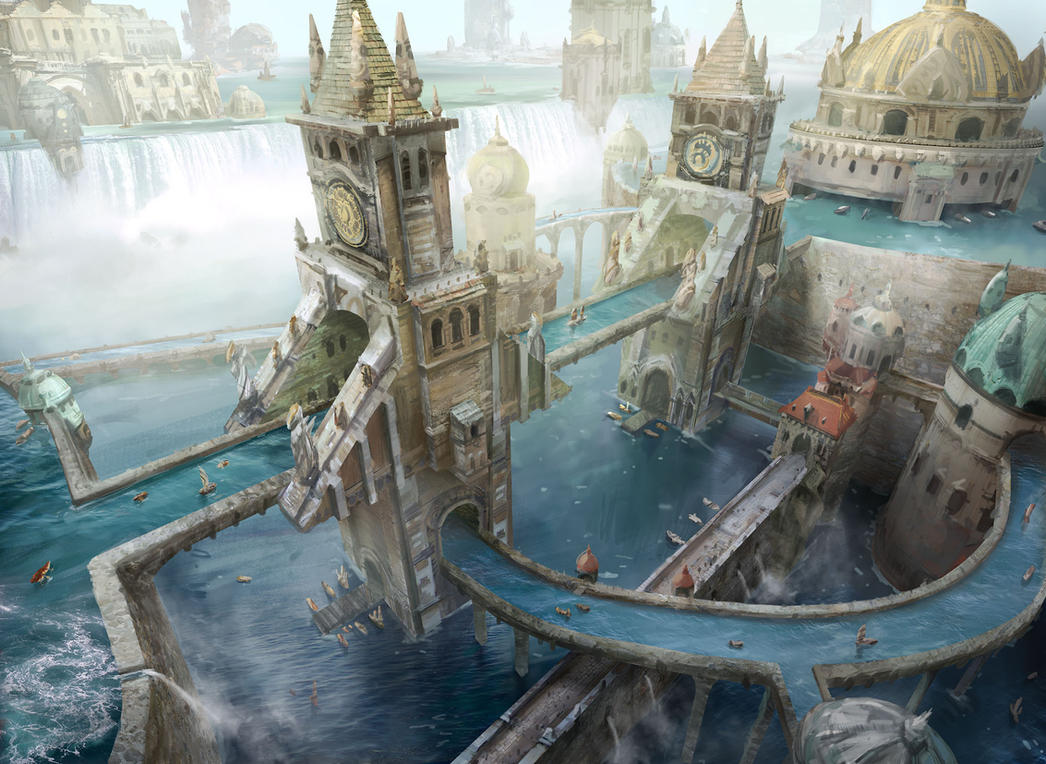121
Exilian Articles / The Power of Rules
« on: September 29, 2017, 10:58:10 PM »The Power of Rules
By Richard Buxton (rbuxton)
By Richard Buxton (rbuxton)
When I was young I met a girl who, like me, enjoyed writing fantasy stories. “Fantasy is very exciting,” she declared, “You can put a dragon over here, a wizard in his tower over there. Anything can happen.” I, in my cynical, childish way, disagreed. What was so creative, I wondered, about mashing up a load of fantasy clichés and seeing what came out? To me, the really exciting fantasy worlds were those where only certain things could happen. Where the laws of nature, though different to those of our own world, could be used to create all sorts of interesting characters and storylines. Even at that age I saw an irony here: was it possible that true creativity required rigid rules?
Some years later, I started work on my Demons saga, a trilogy of fantasy video games. The project never made to the screen, but it nevertheless kept my brain occupied on long car journeys. At the start of the story the hero, Dannial, has his soul forcibly removed. This comes to the attention of three warring demonic races, who all vie to fill Dannial with their own essence, thus turning him into one of their own.
Why am I using this half-baked project as an example? After sketching the plots of the first two instalments of the trilogy, I decided to think in more depth about the laws of nature of the universe I was creating. Why could some beings use magic, and others not? Why was each demon homeworld distinct? What was so important about a human’s soul anyway? When I had made these decisions, an interesting thing happened: the third instalment wrote itself. The characters, their limitations and their access to sources of magic were so clear in my mind that I could weave them together with ease. I was very pleased with this but, when I looked back at the first two parts of the trilogy, I found that their plotlines no longer made scientific sense. If only I had created my rules at the start of the process!
Let’s look at another example: Ravnica, my favourite world from the card game Magic the Gathering. Ravnica consists of one giant city (think Coruscant, only fantastical) and is governed by ten independent guilds. Like any of the Magic the Gathering worlds, all things in Ravnica can be defined by their relationship to the five “colours” of Mana, loosely comparable to the four elements of Earth, Air, Fire and Water. Each guild draws its power from precisely two colours of Mana, and its role in the governance of the city is defined by those colours.
The Izzet Guild, for example, is responsible for infrastructure and machinery, especially anything powered by steam. Its chosen colours, therefore, are Fire and Water. The guild’s members are maverick scientists and mages known for their dangerous experiments. The guild’s leader, meanwhile, is a knowledge-obsessed genius (a Water trait in the game) who also happens to be a dragon (Fire, duh). As you can see, the simple act of combining Fire and Water enabled the designers of Magic the Gathering to create a fascinating cast of characters and a whole aspect of Ravnica’s society, both of which could function within the confines of the game.
When playing a game, the audience explicitly interacts with the laws of nature through the game’s mechanics. The principle of following strict rules in fantasy, however, is equally applicable to other media. In books, for example, the laws are just as important, but, in general, only their noticeable effects end up in the narrative.
I believe that the empowering effect of rules is not limited to the creation of worlds. Picture two art lessons in a school (I work in education so apologies if this feels like a tangent). In one lesson, the teacher is strict and rigorously enforces the school rules; in the other, the children are ill-disciplined and their behaviour is poor. In which lesson are the children able to be more creative? Children, no matter what they tell you, crave (and flourish in) a stable environment. So my paradox appears once again: in order for children to be truly creative, they must be provided with rigid rules.
Hopefully I’ve convinced you that rules liberate, rather than restrict, a storyteller. Many storytellers would, of course, choose a different method of creating their world and, if this applies to you, I’d be interested to hear from you in the comments below. I am often accused (and justly so) of over-prescribing my rules, especially in my current “big” project: a board game in which players use the rules of the Greek myths to prove themselves the best god on Mount Olympus (you can read more about it here).
Thank you for reading, and please feel free to share any thoughts you have on this article!




